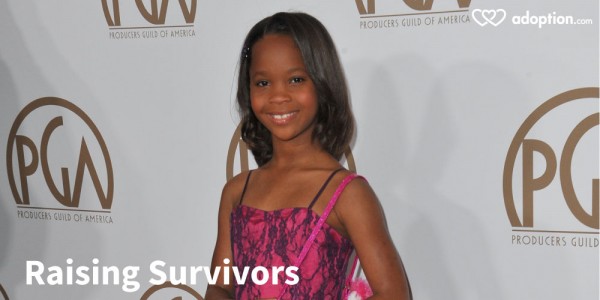As a foster parent, I’m always looking for movies, books, or shows with diverse heroes and cast members, mixed families, or foster and adoption themes to which my children can relate. I was excited to see that a remake of “Annie” was being made to tell the story from the perspective of a modern day foster child. But, when articles and reviews started surfacing questioning whether or not the movie was good for foster or adopted children to see, I became concerned.
Updated lyrics and statements mentioned in reviews such as “No one cares for you a smidge when you’re a foster kid” and “No one wants to adopt a teenager” give me pause because I certainly don’t want my foster (soon-to-be adopted) children hearing those messages.
A few days ago I had all but decided to avoid the remake when I read foster and adoptive mom Maralee Bradley’s post “Your Kids Need ‘Annie.’” Bradley gripped me with the following paragraph:
“So take your kids to see “Annie.” Don’t shelter them from the reality that there are foster kids in their own town. Let them sit for a bit in the understanding that not everybody has a home where they belong. Let them develop empathy. Let them wonder how they can help. You may very well be raising a future foster mom, a future adoptive dad, a potential lawyer or judge or caseworker or advocate for the needs of these kids. This can be part of a spark that lights a fire for them. Shelter them from being hurt by the tragedies in this world, but don’t shelter them from understanding that other kids haven’t had that kind of care and protection. Help them understand with compassion and love the realities of the world around them.”
This hit me hard because that was me – I was that kid who was made aware of foster kids around me at a young age and became impassioned to take action. But, I was hit harder by the flip side of her statement. She encourages parents not to shelter naïve children from this reality, but I was looking to shelter my all-too-aware children of these same realities.
We work at communicating openly about the experiences our children have faced, so we can aid in their healing. However, this made me realize that there are still some things I try to shelter them from. Things they’ve already experienced and lived through. Thoughts they may have had on their journey. It’s a strange after-the-fact mama bear mode that kicks in when your children have been exposed to heartbreak before you were in their life to protect them from it.
The fact still remains, though; they have already experienced it and they may have felt that no one cared for them as a foster child. They know those realities all too well. And while I will do everything in my power to ensure that those experiences and thoughts never repeat themselves, I can’t change the fact that something has to be done with the reality they have already lived.
I cannot shelter my children from their own story. As much as I wish I could take away their painful memories, they are there just the same. The choice then becomes to ignore the reality and keep them from situations where hard things are addressed, which can lead to repression of the feelings and issues that may result from trauma, or to empower them to take ownership of their story. I can allow them the space and safety to openly discuss those things and feel however they may feel about it at any given time. We can work to raise strong and confident survivors who are free to talk about their experiences. They may even become more aware of and sensitive to the suffering of others, because they have overcome their own struggles.
Whether or not those sad statements from “Annie” are completely true, many foster children do feel that way based on their experiences. I am not in a position to tell them they aren’t allowed to feel that, or that they can’t grieve parts of their story. However, I am in a position to provide my children the tools and opportunity to process their experiences and feelings, validate their right to feel what they do about those things, to ensure them of their place in our family, and be open to listen and discuss things in the world that may cause hard feelings to surface.
We will likely wait to see “Annie” when it is out of theaters, and when we do see it, we will ask our children what they think and feel about Annie’s story, what made them happy or sad, what it meant to them. We will also tell them what we think and feel about it, how no child should ever feel like no one cares about them, that those feelings are why we became foster parents, and how we are the luckiest parents in the world because we get to be included in their story.

